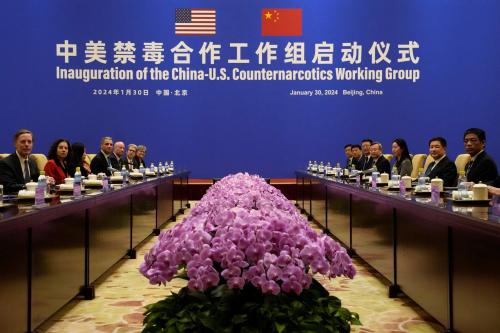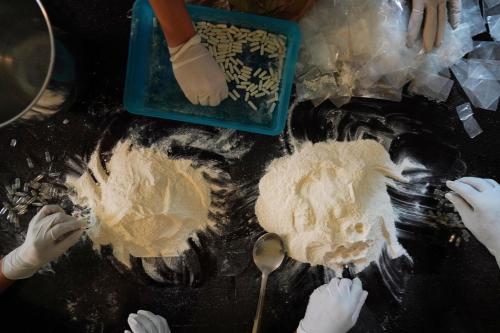

10:00 am EDT - 11:30 am EDT
Past Event
The U.S. opioid epidemic became particularly deadly when synthetic opioids, such as fentanyl and its analogs, entered the U.S. market a decade ago. Faced with intense U.S. diplomacy, China moved between 2018 and 2019 to regulate fentanyl analogs and two fentanyl precursors. Yet this scheduling has not been sufficient to stem the flow of fentanyl to the United States. Rather, it has mostly led to shipments being rerouted through Mexico. As U.S.-China bilateral relations have grown more tense, Beijing’s willingness to cooperate with Washington on counternarcotics has become more limited.
On March 28, the Brookings Institution’s Initiative on Nonstate Armed Actors held a panel discussion exploring the following questions: What role does China play in the U.S. opioid epidemic? How does it balance its geostrategic objectives with its international law enforcement cooperation? And what can be learned from the evolving role of China in the smuggling of methamphetamine and its precursors in the Asia-Pacific region? This event featured the findings of a recent Brookings report on China’s role in the smuggling of synthetic drugs and their precursors to the United States, Mexico, and in the Asia-Pacific region.
After their remarks, panelists took questions from the audience. Viewers submitted questions via email to [email protected] or Twitter using #NonstateArmedActors.
Panelist



Vanda Felbab-Brown
April 16, 2024

Vanda Felbab-Brown
February 29, 2024

Vanda Felbab-Brown
July 19, 2023